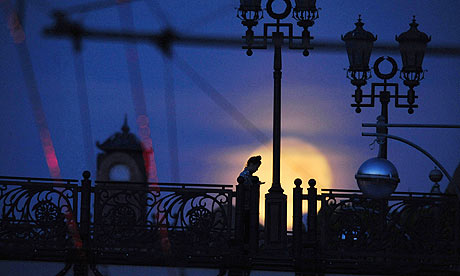
Lady Mary Wortley Montagu believed that satire should be sharp and fine as a razor, sliding into its subject deeply but barely discernibly. Her quarrel with Pope, said to originate in her rejection of him as a suitor, produced some particularly cutting strokes. She claimed, for example, that one of his Horace "imitations" demonstrated that his translation-technique, like his deformed body, was a "species in burlesque". She spared no one, including her own sex: "The one thing that reconciles me to the fact of being a woman is the reflexion that it delivers me from the necessity of being married to one."
But she understood how women's faults often originated in male attitudes, as is clear in "A Summary of Lord Lyttleton's Advice to a Lady": "Be plain in dress and sober in your diet./ In short, my deary, kiss me! And be quiet." She was, correspondingly, an advocate of women's education, and shared with her friend Mary Astell the ideal of founding a women's university where the students could develop their intellectual gifts free of the pressures towards young marriage – which she knew at first hand.
Her own mother had died when she was small, and her father took little interest in his daughter's education. However, when Mary taught herself Latin, he is said to have rewarded her with Italian lessons (perhaps a language with higher marriage-market value?) Later, she learned French and Turkish. She lived in Istanbul for a time with her husband, Edward, who had been appointed the English ambassador there, and it was "The Turkish Embassy Letters" she wrote to assorted friends that established her literary reputation when assembled and published the year after her death. She had been severely disfigured by smallpox, and, having discovered in the East an innovative form of inoculation known as variolation, she fought hard to interest the London medical establishment in the practice. Her last years were spent apart from her MP husband, in virtual exile in France and Italy.
Anthologists usually settle for her spikier poems, such as "The Lady's Resolve" with its chilly, and not very woman-friendly, punchline: "He comes too near, that comes to be deny'd." Splendid as the satires are, I've chosen for this week's poem a less-characteristic lyric, "A Hymn to the Moon".
Metrically, the poem is unusual, even innovative for its age, moving from iambic pentameter for the first invocation to a mixture of tetrameter and pentameter in the following two stanzas. It exposes a process – that of liberation from the regularity of metre which convention demanded to a more flexible and vocal mode. The shorter lines are appropriate to a hymn, and heighten the rhetoric. While the poem is laden with classical and pastoral allusion, it's worth remembering that moonlit arbours and groves would have been local and ordinary features of the various country-houses Montagu inhabited. The poem seems to work through an intense but controlled, somewhat predatory, personal emotion in its miniature space. The lightly-glancing razor now takes the form of a moon-goddess's arrow, perhaps.
Montagu wrote her own Italian translation of this poem suggesting the arrow might be aimed at her unrequited feelings for Francesco Angarotti, the young Italian novelist and man of letters whom she pursued in her later years. "Tender grief" clearly means love-sickness. But, whoever he is, the male "muse" is not apostrophised: the emotion is diverted and confided to the female deity, who is, note, also a "friend" and "guide". There is an impression of solidarity, or what later feminists would call "sisterhood", between two great ladies – the aristocratic poet and the goddess.
Marissa Caston considers the poem to represent the three personae of the moon: Selene, Artemis, and Hecate. Montagu herself had conflicting "aspects" (what woman doesn't?) and I think she may have seen herself as the one-time "fair queen", transformed by illness and age to Queen of the Night. That striking last line certainly seems to embody the essence of her character: steely, as well as feisty, and perhaps a little merciless.
For a contemporary poet's imaginative verse-biography of Montagu, see Linda France's The Toast of the Kit-Kat Club: A Life of Lady Mary Wortley Montagu (Bloodaxe Books, 2006).
A Hymn to the Moon
(Written in an Arbour)
Thou silver deity of secret night,
Direct my footsteps through the woodland shade;
Thou conscious witness of unknown delight,
The Lover's guardian, and the Muse's aid!
By thy pale beams I solitary rove,
To thee my tender grief confide;
Serenely sweet you gild the silent grove,
My friend, my goddess, and my guide.
E'en thee, fair queen, from thy amazing height,
The charms of young Endymion drew;
Veil'd with the mantle of concealing night;
With all thy greatness and thy coldness too.

